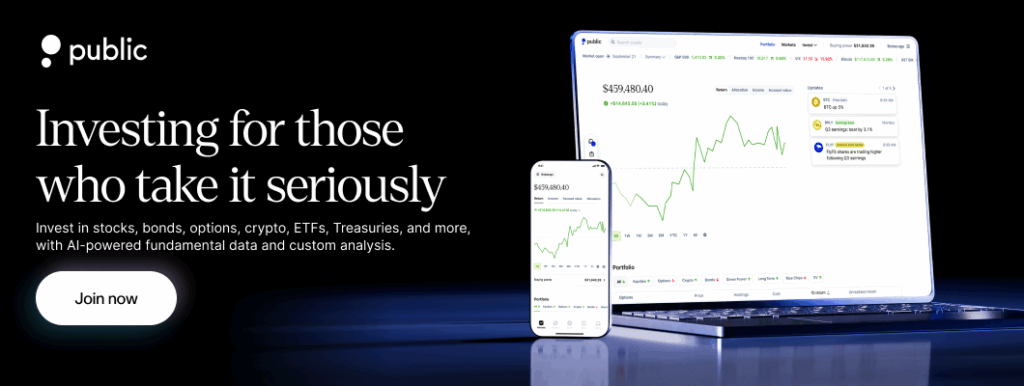Inflation often shows up in financial headlines and investor conversations. If you’re investing in the U.S. stock market, you’ve probably noticed that inflation data may influence how markets move—sometimes in ways that aren’t immediately predictable. But what’s the actual connection between inflation and the stock market? And how does it affect companies, consumers, and you as an investor? This comprehensive guide will walk you through an overview of how inflation impacts stocks.
How does inflation affect the stock market

Table of Contents
Understanding inflation and its measurement
Inflation refers to the general increase in prices across goods and services in an economy over time. The most commonly cited measure in the U.S. is the Consumer Price Index (CPI), which tracks the average change in prices paid by consumers for a basket of goods and services. When CPI rises, your purchasing power falls unless your income keeps pace.
Inflation can be driven by various factors:
- Increased consumer demand (demand-pull inflation)
- Rising production costs (cost-push inflation)
- Expansionary monetary policies
The Federal Reserve (Fed) targets an average inflation rate of 2% as a sign of healthy economic growth, but deviations from this target may have significant consequences for financial markets.

How inflation affects the economy
To understand its impact on stocks, let us first consider how inflation affects the economy at large. When inflation rises too quickly:
- Consumer spending may slow down as goods and services become more expensive.
- Borrowing costs may increase if the Fed raises interest rates to cool inflation.
- Corporate profits may be squeezed if companies can’t pass higher input costs onto consumers.
- Savings may lose value in real terms if returns don’t outpace inflation.
Each of these effects can ripple through the stock market in different ways, depending on which sectors, companies, or economic conditions are at play.
The impact of inflation on the stock market
You may wonder how inflation can affect stock prices. The relationship between inflation and the stock market is complex, but there are several key dynamics you might find helpful to understand:
1. Earnings pressure can affect stock valuations
Company earnings are a major factor in stock prices. When inflation increases input costs-such as materials or wages-profit margins may shrink unless businesses can pass those costs onto consumers.
If earnings fall or are expected to fall, stock prices may decline. Many investors watch quarterly earnings closely to see how companies are managing through inflationary pressure.
Example:
Suppose a retail company faces higher costs for inventory but hesitates to raise prices due to customer sensitivity. Their profit margins may drop, even if revenues stay the same. This can lead to a decrease in the stock price as expectations are adjusted.
2. Interest rate hikes and their effect on equities
One of the most direct ways inflation impacts the market is through the Federal Reserve’s response. When inflation rises significantly, the Fed may raise interest rates to help slow it down. Higher interest rates generally:
- Increase borrowing costs for companies
- Make bonds and fixed-income assets more attractive
- Reduce consumer spending and business investment
These factors may make stocks less appealing, especially for companies that rely on borrowing or anticipate future profits.
3. Sector rotation: Not all stocks react the same way
Inflation does not affect every sector equally. You may notice shifts in which types of stocks are favored during different inflationary periods; this is sometimes called “sector rotation.”
- Energy and commodity stocks: These may benefit from inflation, as the prices of oil, gas, and metals often rise.
- Consumer staples: Companies selling essential goods (like food or household items) may hold up better, since people continue buying these items even during inflation.
- Tech and growth stocks: These can come under pressure, particularly if they rely heavily on future earnings or inexpensive capital.
Example:
In a high-inflation environment, an oil producer’s stock might rise due to higher crude oil prices, while a technology company’s stock could decline if higher borrowing costs and reduced consumer demand are expected.
4. Reduced future value of cash flows
Stock prices are often based on expectations of future cash flows. Inflation reduces the present value of those future dollars. This means that, during periods of higher inflation, investors might be willing to pay less for a company’s anticipated profits.
Example:
If a company is projected to earn $10 million five years from now, higher inflation may lead investors to discount that figure more heavily, potentially lowering the stock’s valuation today.
5. Volatility tends to increase
Periods of high inflation are often accompanied by uncertainty. Questions such as, “Will the Fed raise rates again?” or “How will consumer demand change?” can make markets more volatile.
You might notice sharp moves in stock prices-even in companies with no direct news-simply because inflation data or interest rate projections have changed.
Example:
A surprise CPI report showing inflation rising faster than expected may trigger a broad selloff, even if underlying company fundamentals remain unchanged.
Note: Remember, understanding these dynamics can help you interpret market movements, but every investor’s situation is unique. For personalized guidance, you may consider consulting a qualified financial professional.

Do stock prices rise with inflation?
It depends. The relationship between stock prices and inflation isn’t always straightforward. Historical data shows mixed results, and the impact can vary based on:
- The type of company or sector,
- The investor’s risk exposure,
- The stage of the economic cycle.
For instance, during the second quarter of 2021, the U.S. was in the mid-cycle phase of economic expansion. This typically suggests that growth is continuing but may eventually lead to contraction or recession.
What happens when inflation declines?
Inflation doesn’t usually stay elevated forever. When inflation starts to ease, company earnings may decrease as well. That’s because inflated prices no longer prop up revenue and profit figures. However, this doesn’t necessarily mean the company has lost value—reduced inflation means each dollar has more purchasing power.
So while revenue figures may decline, the relative value of the company’s output could remain steady or even improve in real terms.
Conclusion
Inflation is a complex force that shapes the stock market in both obvious and subtle ways. While the relationship between inflation and stocks is not always straightforward, staying informed about economic trends and maintaining a diversified approach may help you navigate periods of uncertainty.
If you’re looking to put your knowledge into action, you may consider exploring Public.com. With Public, you can easily research stocks, ETFs, Treasuries, high-yield cash account, crypto, and IRAs—all in one place. We bring together resources and tools that may be useful for exploring different investment options and staying updated on market developments.
Join Public.com today to stay informed about market trends and continue your financial journey.
